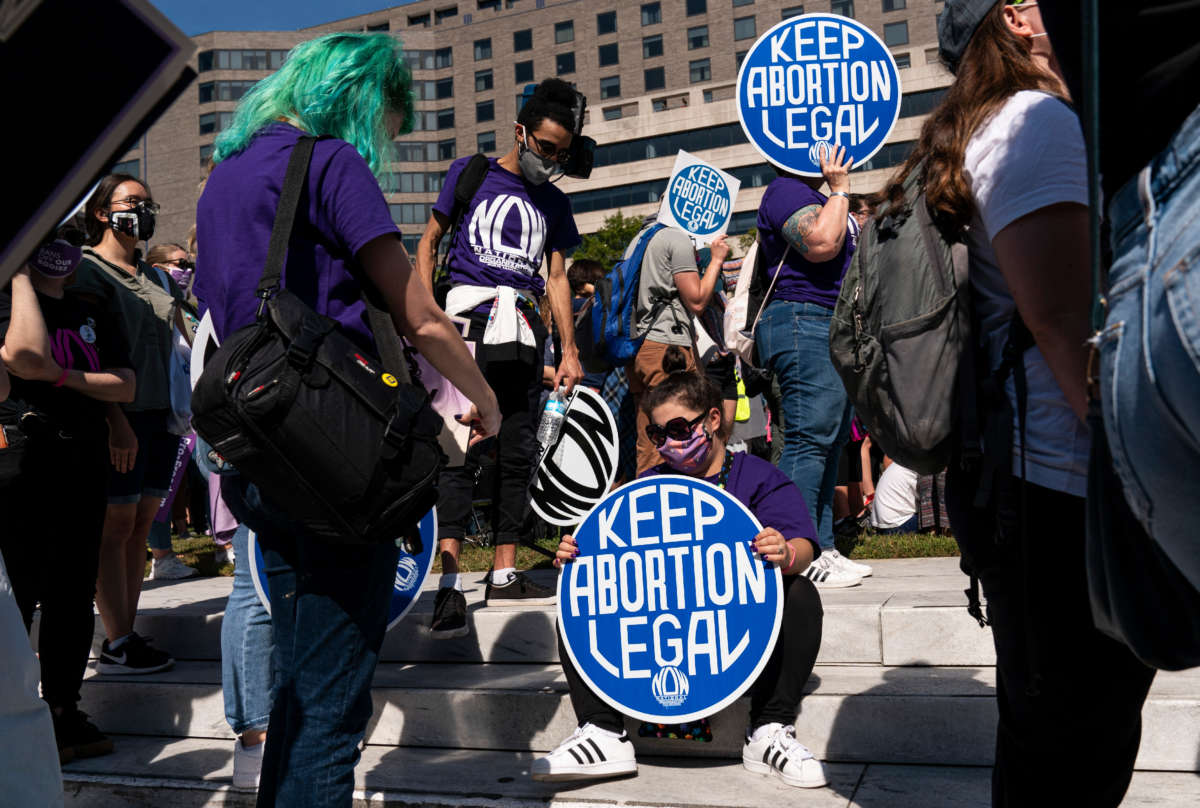Texas’s restrictive abortion law, which prohibits the procedure after six weeks of pregnancy and allows individuals, rather than the state, to enforce the ban through lawsuits, will remain in place after a legal challenge to the law’s constitutionality was remanded to the state court system, likely delaying the appeals process by months.
The United States Court of Appeals for the Fifth Circuit rejected a request from abortion providers in the state to return a case challenging the law to the original judge who had found it unconstitutional. Instead, the three-judge panel of the Fifth Circuit Court is transferring the case to the Supreme Court of Texas, where the question over who can be sued will be scrutinized.
The move ensures that the law will remain in force in Texas while being adjudicated in the state — rather than in the federal court system — for what could be a period of several more months.
In a 2-1 ruling, the majority opinion of the Fifth Circuit Court panel said that the decision was “consistent” with the Supreme Court’s ruling last month. But the High Court had already determined that state officials — including those on the Texas Medical Board, the Texas Board of Nursing, the Texas Board of Pharmacy, and the Texas Health and Human Services Commission — could be sued over enforcement of the law.
Last month, when the Fifth Circuit agreed to hear an appeal brought on by state officials who wanted the state Supreme Court to decide on the matter, critics lambasted the decision to go forward with the idea, noting that it would ultimately lead to a longer delay on the question of the law’s legality.
In his dissenting opinion against the ruling on Monday, Judge Stephen Higginson agreed with those concerns.
“This further, second-guessing redundancy, without time limit, deepens my concern that justice delayed is justice denied, here impeding relief ordered by the Supreme Court,” Higginson wrote.
Observers who are following the case said that the way the case was being handled — first with the federal Supreme Court allowing it to remain enforced, even as it’s being further deliberated, and now with the Fifth Circuit’s decision this week — parallels how the law itself was designed to evade legal challenges.
“The gyrations from courts to avoid issuing a stay rival the law itself for elaborate lawlessness,” wrote Harry Litman, a former U.S. Attorney.
Others, such as Alice Miranda Ollstein, a health care reporter for Politico, noted that the decision by the appellate court seemed to be a deliberate attempt to keep the matter open, at least until the Supreme Court rules on other challenges to abortion access later this year.
“The judge who wrote tonight’s ruling explicitly floated running out the clock during oral arguments, saying: ‘Maybe we should just sit on this until the end of June and leave the hot potato with the Supreme Court,'” Ollstein wrote.
Marc Hearron, an attorney with the Center for Reproductive Rights, blasted the decision by the Fifth Circuit Court. The appeal of the law, Hearron said, is “being delayed and strung out while patients across Texas are denied their constitutional rights.”
Join us in defending the truth before it’s too late
The future of independent journalism is uncertain, and the consequences of losing it are too grave to ignore. To ensure Truthout remains safe, strong, and free, we need to raise $46,000 in the next 7 days. Every dollar raised goes directly toward the costs of producing news you can trust.
Please give what you can — because by supporting us with a tax-deductible donation, you’re not just preserving a source of news, you’re helping to safeguard what’s left of our democracy.
